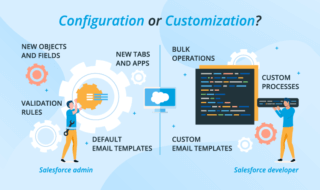Contents
The Role of Self-Education in Personal Finance
You must be able to successfully negotiate the challenging realm of personal finance if you want to achieve financial success. While going to formal training is a great way to learn about personal finance, it’s equally vital to learn on your own. People should actively endeavor to increase their financial literacy since actions made now have a significant impact on the future, as the current state of the economy demonstrates.
Individuals who are dedicated to continuing to learn about personal finance are responsible for making smart choices, handling their resources effectively, and planning for the future.
The Benefits of Financial Self-Education in Comprehending Concepts
An essential advantage of engaging in personal finance self-education is the acquisition of a thorough comprehension of foundational financial principles. At their own tempo, individuals have the ability to explore subjects including debt management, retirement planning, budgeting, and investing. The provision of autonomy facilitates a more profound understanding of these principles, empowering individuals to implement them more efficiently in their distinct financial contexts.
Customizing Approaches to Sufficient Resources: By acquiring knowledge on their own, people are able to customize financial strategies to suit their particular circumstances and objectives. Persons who have acquired self-education and possess tailored knowledge rather than generic advice are capable of making choices that are in line with their personal objectives. Within this framework, the fundamental idea of “do your own research (DYOR)” takes on a new significance, highlighting the significance of self-directed investigation and education in the process of making decisions.
Developing Resilience and Confidence: Although financial decisions frequently entail an element of unpredictability, self-education can foster the confidence required to overcome these obstacles. A comprehension of financial markets, investment alternatives, and risk mitigation tactics cultivates fortitude in the midst of economic oscillations. When coupled with adaptability, confidence enables individuals to make prudent financial decisions despite unforeseen circumstances.
Advocating for Financial Responsibility: The cultivation of self-reliant financial management skills is fostered through self-education. Acquiring knowledge regarding the potential and unintended repercussions of one’s financial decisions fosters a greater sense of responsibility among individuals when it comes to matters financing. This obligation encompasses judicious budgeting, saving, and investing, all of which ultimately contribute to the establishment of enduring financial stability.
An Anthology of Self-Education Tools and Resources
Prior to delving into a wide array of educational materials, it is critical to acknowledge the abundance of choices that exist for individuals seeking to improve their financial literacy. By delving into these resources, individuals not only expand their knowledge but also accommodate diverse learning preferences.
- Online Courses: A plethora of online platforms provide personal finance courses encompassing fundamental budgeting principles as well as sophisticated investment strategies. Frequently incorporating real-world scenarios, exams, and interactive materials, these courses enrich the learning experience.
- A plethora of scholarly works, spanning from established classics in personal finance to up-to-date guides, offer comprehensive explanations of fundamental financial principles. Those who wish to acquire a more comprehensive and nuanced understanding of intricate financial concepts may find books to be extremely beneficial as resources.
- Media coverage of finance: Staying up to date on the most recent developments in the field of finance is essential for making sensible decisions. Maintaining a regular eye on reliable financial news sources and analysis can provide insightful information about market patterns, economic indicators, and investment opportunities.
Applications in Practice
In practical implementations, it is critical to recognize the experiential nature that these tools impart to the process of self-education. These resources provide engaging simulations and interactive applications that enable users to apply theoretical knowledge to real-world scenarios.
In the age of technology, the advent of budgeting apps has completely changed the personal financial industry. By enabling users to keep an eye on their spending, set financial goals, and access the most recent data on their spending patterns, these apps promote proactive money management. Financial simulation games provide an environment devoid of risk in which one can evaluate and refine investment strategies and decision-making abilities. These gaming platforms afford users the opportunity to engage in theoretical financial simulations, thereby refining their abilities in the absence of tangible repercussions.
Participating in community events, online forums, and meet-ups that cater to individuals with similar interests in financial literacy cultivates a sense of camaraderie and assistance within the community. Engaging in knowledge exchange, deliberating on financial strategies, and gaining insights from the triumphs and tribulations of others can prove to be extraordinarily beneficial throughout the process of self-education.
In summary
In the dynamic and rapidly evolving world of personal finance that we live in today, self-education is essential. In addition to enhancing individual financial security, giving people the knowledge and tools they require to make informed decisions raises the general level of financial literacy in the community.
Learning yourself becomes a continuous process in which people interact with various educational resources and apply them in real-world situations to comprehend the complexities of personal finance and reach their financial objectives.



